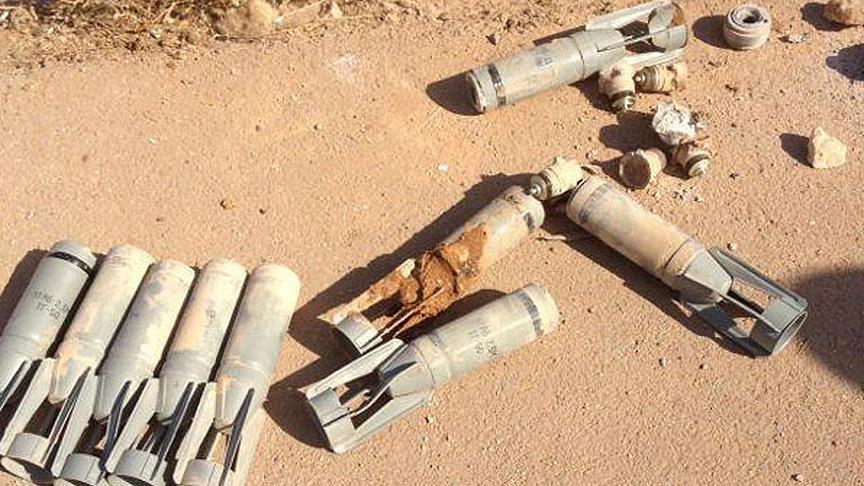$28 bln invested in cluster weapon producers in 4 years
Report finds 158 financial institutions involved in funding production of weapons, despite int’l law banning cluster bombs

Cambodia
By Lauren Crothers
PHNOM PENH, Cambodia
More than $28 billion has been invested in the production of deadly cluster munitions over the past four years, according to a report released Thursday.
The Cluster Munition Coalition said in a statement that the report on worldwide investments in the weapons -- which release submunitions or bomblets on impact -- found 158 financial institutions involved in funding their production.
As a result, the Coalition is calling on the institutions and governments “to put an end once and for all to investment in producers of cluster bombs.”
Cluster bombs are banned under international law, but only 100 countries have actually become state parties to that convention.
At present, countries like Syria and Yemen are being bombarded with cluster munitions, added the report.
Cambodia-based Denise Coghlan, head of the Cambodian Campaign to Ban Landmines, told Anadolu Agency on Thursday that the use of the weapons in those countries is “an incredible disaster in terms of creating danger for displaced people and refugees”.
“This week, on June 20, it is World Refugee Day, when we will think about people disabled and displaced by cluster bombs. For these financial institutions to be spending this much money perpetuating these weapons is a mortal outrage,” Coghlan stressed.
Between June 1, 2012 and April 8 of this year, the financial bodies from 14 countries pumped the cash into seven weapons producers that include “China Aerospace Science and Industry, China Aerospace Science and Technology, Norinco (China), Hanwha and Poongsan (South Korea), Orbital ATK and Textron (United States)”, the statement said.
Munitions produced by Textron were found to have been used by Saudi-led coalition forces in Yemen since 2015.
“The vast majority of the financial institutions (138) are from countries that have not joined the 2008 Convention on Cluster Munitions,” it added.
“Of these, 74 are from the United States, 29 from China and 26 from South Korea. However, 20 financial institutions that have invested in producers of cluster munitions are from countries that have joined to the convention: Canada, France, Germany, Japan, Spain, Switzerland and United Kingdom.”
It said that between 2015 and this year, 91 percent of the cluster munitions casualties in Yemen “were civilians, including deminers”, and that 22 percent of the civilian casualties were children.
“On 27 May 2016, the United States government blocked the transfer of these CBU-105 Sensor Fuzed Weapons to Saudi Arabia because of concern at the use of cluster munitions in or near civilian areas,” the statement said.
Coghlan told Anadolu Agency that having countries become parties to the convention is “the long-term solution to addressing the root cause of the problem”.
“Clearing the weapons is curative, but if you really want to prevent, you have to ban the use and creation of the weapons in the first place.”
Anadolu Agency website contains only a portion of the news stories offered to subscribers in the AA News Broadcasting System (HAS), and in summarized form. Please contact us for subscription options.

